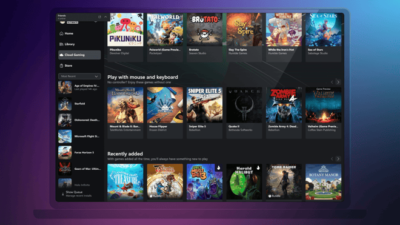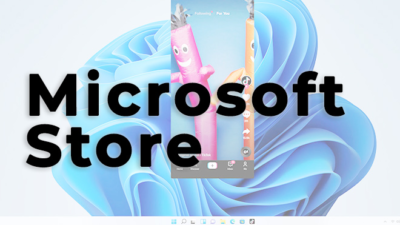5 simple things you can do to keep your Windows 11 computer safe

As computer users, it’s important to take steps to protect our devices and the personal information they contain. Here are some simple things you can do to keep your computer safe:
1. Keep your operating system and security software up to date
It’s important to regularly update your operating system and security software to ensure that you have the latest security patches and features. Keeping your operating system and security software up to date is an important step in protecting your computer from online threats. When software is updated, it often includes patches for security vulnerabilities that have been discovered. These patches help prevent hackers from exploiting those vulnerabilities to gain access to your computer or steal your personal information.
Additionally, updated security software can help protect your computer against the latest threats. As new threats are discovered, security software providers will release updates to their programs that include protections against those threats. By keeping your security software up to date, you can ensure that your computer has the latest protections against the latest threats.
2. Use a strong, unique password for each of your online accounts
Using the same password for multiple accounts makes it easier for hackers to gain access to all of your accounts if one is compromised. Using a strong, unique password for each of your online accounts is an important step in protecting your personal information.
Having a strong password makes it more difficult for a hacker to guess or crack your password and gain access to your account. A strong password should be at least eight characters long and include a combination of letters, numbers, and special characters. Avoid using common words or phrases, personal information, or repetitive characters.
3. Be cautious when opening email attachments or clicking on links
Email is a common way for hackers to distribute malware, so it’s important to be cautious when opening attachments or clicking on links in emails, even if they seem to be from a legitimate sender. If you’re not sure whether an email is legitimate, contact the sender directly to verify before opening any attachments or clicking on any links. It’s important to be cautious when opening email attachments or clicking on links, as this is a common way for hackers to distribute malware. Malware is a type of software that is designed to damage or disrupt a computer system. It can take many forms, including viruses, ransomware, and spyware. Make sure that you have proper malware protection so that if you click any link or open an attachment by mistake you will be protected by the software.
It’s also a good idea to avoid opening attachments or clicking on links if you weren’t expecting them or if the email contains unusual language or requests. For example, if you receive an email from a supposed friend or colleague asking you to click on a link to view a video, but you weren’t expecting any such request, it’s likely that the email is not legitimate.
Overall, being cautious when opening email attachments or clicking on links is an important way to protect your computer from malware. By verifying the legitimacy of emails and being cautious of unexpected attachments or links, you can help prevent malware from being installed on your computer.
4. Use a firewall to protect your computer from unauthorized access
A firewall is a piece of software that helps protect your computer from unauthorized access by blocking incoming and outgoing traffic. It acts as a barrier between your computer and the internet, allowing only authorized traffic to pass through. This can help prevent hackers from accessing your computer and stealing your personal information.
Most operating systems include a built-in firewall, but you can also install third-party firewall software for added protection. A firewall can be configured to block specific types of traffic or to allow only authorized traffic to pass through.
It’s important to keep your firewall enabled and up to date to ensure that it continues to provide effective protection. You should also periodically review your firewall settings to make sure they are still appropriate for your needs.
5. Use encryption to protect your sensitive data
Encryption is the process of encoding data so that it can only be accessed by someone with the correct decryption key. This can help protect your sensitive data, such as financial information and personal documents, from being accessed by unauthorized individuals.
There are many different types of encryption algorithms, and the level of security provided by each algorithm can vary. Some algorithms are considered to be more secure than others, but all encryption algorithms are designed to make it difficult for unauthorized individuals to access the encrypted data.
If you have sensitive data that you want to protect, you can encrypt it using encryption software. This software will encode the data using a specific encryption algorithm and will require a decryption key to access the data. You should keep the decryption key in a safe place, as without it, the encrypted data will be unreadable. There are a lot of companies that offer such kind of protection. So, make sure that you are using good cybersecurity software that can be used to protect your data from any kind of unauthorized access. By following these simple steps, you can help protect your computer and the personal information it contains. Keep your operating system and security software up to date, use strong and unique passwords, be cautious when opening email attachments and clicking on links, use a firewall, and encrypt your sensitive data. Doing so will help keep your computer
Research Snipers is currently covering all technology news including Google, Apple, Android, Xiaomi, Huawei, Samsung News, and More. Research Snipers has decade of experience in breaking technology news, covering latest trends in tech news, and recent developments.












